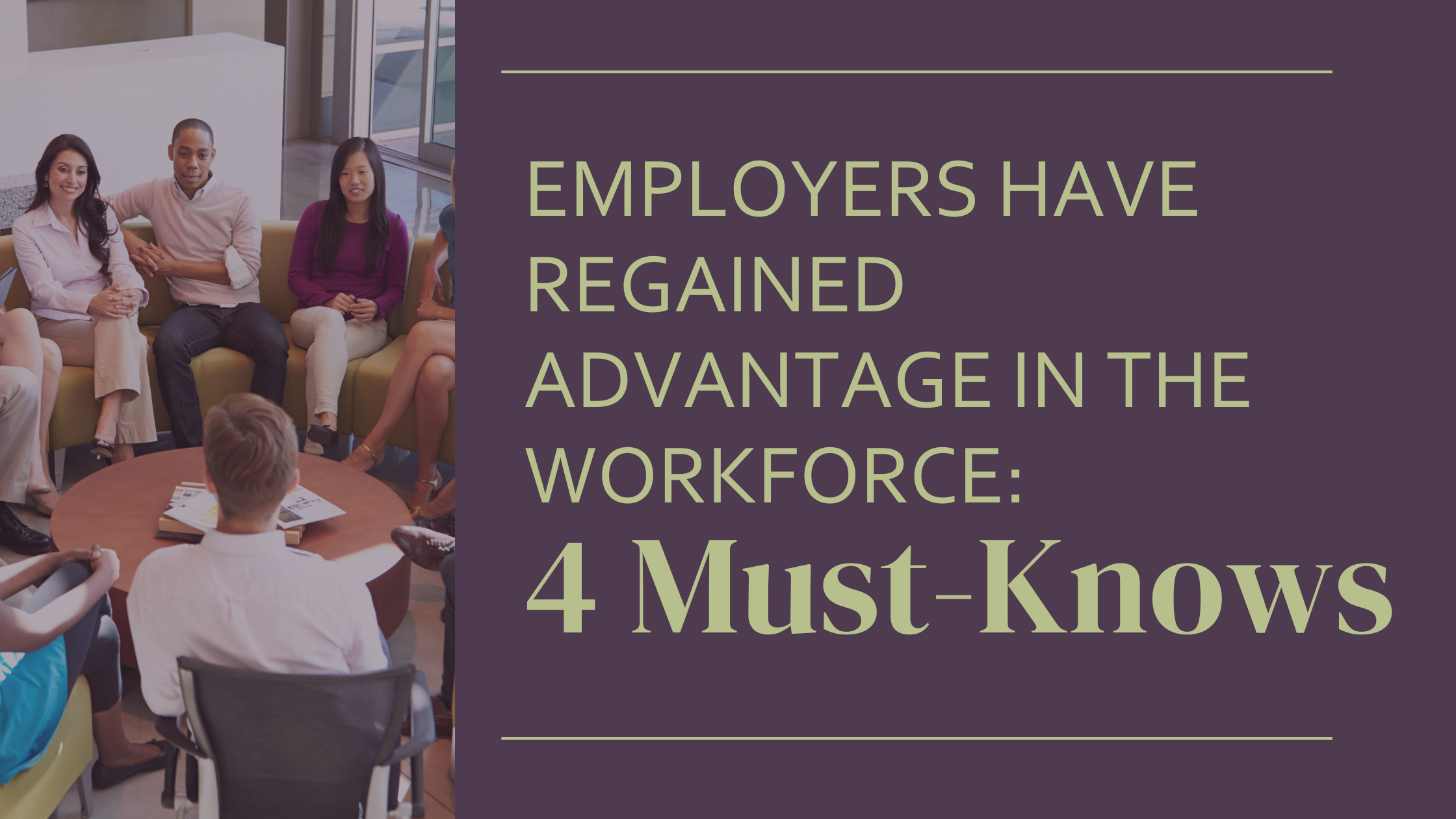Employers Have Regained Advantage in the Workforce: 4 Must-Knows

Employees have had the advantage in the workforce for years. Finally, new research indicates that HR professionals and their employers have regained the upper hand.
Nearly two-thirds of HR leaders believe the balance of power is returning to employers, according to isolved’s Fifth Annual HR Leaders Report. Researchers and HR pros believe the shift will drive a stronger focus on cost-saving strategies and operational efficiencies as companies adjust to changing workplace expectations.
Employers Gain Advantage, Responsibility
“As they say, with great power comes great responsibility, and while the balance is shifting back to employers, HR leaders understand that providing positive employee experiences remains a critical driver of retention and productivity,” says Amy Mosher, Chief People Officer at isolved. “To stay competitive, employers must get creative, leveraging data-driven strategies, optimizing talent management and reimagining workforce engagement to attract, retain and empower top talent while driving operational efficiency.”
So why are employers in the driver’s seat when it comes to today’s workforce? Let’s look at four critical data points isolved found, why each is important and what HR can do to capitalize on them.
No. 1: HR is Key Business Driver
Data: Ninety-four percent of HR leaders say HR is now a key business driver, which is a significant increase from 70% in 2022.
Importance: Best. News. Ever! HR leaders aren’t just saying this to make themselves feel better. It’s the words and actions from the top of the corporate chain. The C-suite is finally seeing that properly managing their human capital helps build better business results.
Capitalize: Use this turn of the tide to get your seat at the decision-making table and your voice heard when you sit down. If you aren’t already in on executive and corporate decision-making meetings, use data to get there. Show with numbers how performance, personnel and engagement management have improved operations – and how you can continue to do even better with the right resources.
No. 2: Employee Engagement as a Differentiator
Data: “A third (of employers) report that improving employee experience is still top of mind and a key differentiator,” says Mosher.
Importance: Engagement is a critical factor in employees’ willingness to sign on and stay with employers. Job candidates gravitate toward companies where they see employees engaged with their work, the mission and their colleagues. As far as loyalty, the tale is still the same: Employees leave managers and/or the people they work with, not the company. If they’re engaged with the people, they’ll stay loyal.
Capitalize: When you’re deep into the recruiting process with great candidates, get employees who are highly engaged involved. Whether it’s through video or in person, allow them to talk about why they love your company. As far as keeping current employees, regularly gauge engagement. You’ll likely find pockets where it’s low, and that’s where you’ll want to focus on the relationships employees have with their leaders.
No. 3: Diversity, Equity, Inclusion & Belonging Still Critical
Data: More than 50% of HR pros report an increased focus on diversity, equity, inclusion and belonging (DEI&B) in 2024. That’s despite ongoing initiatives to revoke DEI in the workplace.
Importance: DEI&B still matters. Employers want to retain top talent and foster an inclusive workplace. Job candidates, especially Gen Z and Millennials, consider the depth of an employer’s commitment to DEI&B when deciding on taking a job. As far as current employees, lean into Employee Resource Groups (ERGs). Put employees in the driver’s seat when it comes to creating and maintaining ERGs that are important to them.
Capitalize: You’ll find a guide to handle DEI questions and concerns in the recruiting process from our expert contributor Sarah Peterson Herr here: Be Prepared for Hard DEI Conversations: 6 Practical Tips for Recruiters. And to improve your existing efforts, check out this: Don’t Let DEI Die: 5 Strategies to Help Diversity Efforts Thrive.
No. 4: HR Has Bright Future
Data: More than 50% of HR leaders are optimistic about the future of their industry — and 33% are highly positive.
Importance: Moving forward, HR pros will want to embrace their role in change management to help ensure agility across the organization.
Capitalize: As HR pros, with some degree of oversight on everyone in the organization, you can help balance power shifts within the employer-employee relationship. That might include delivering personalized experiences that can make a difference in employees’ careers, the company’s success and the organizational culture.
Article originally published by HRMorning.com on July 21, 2025. Written by Michele McGovern.